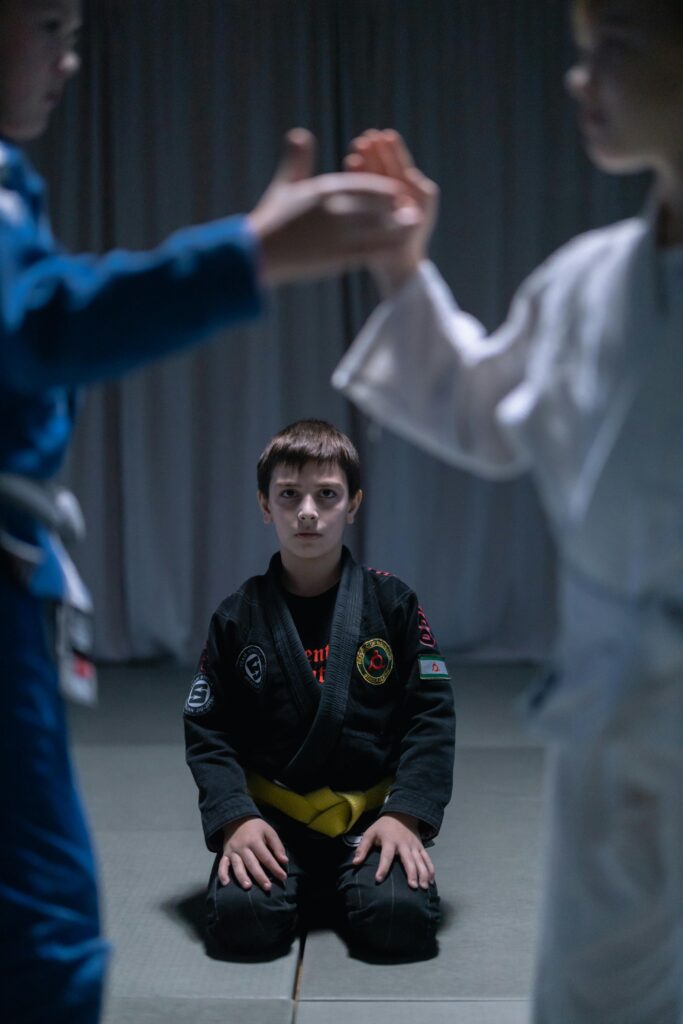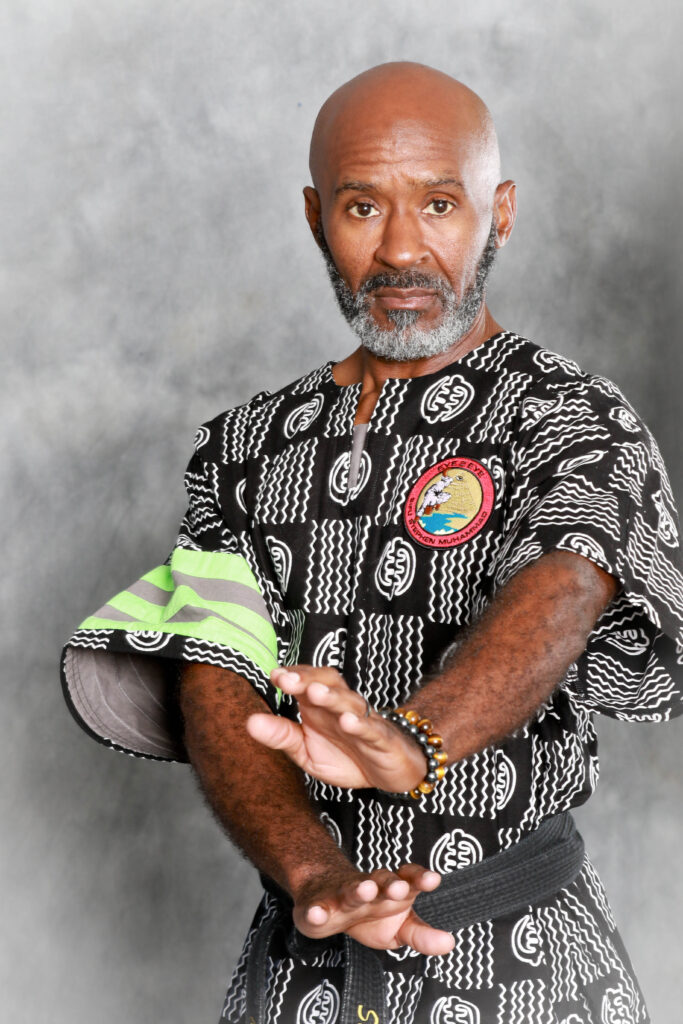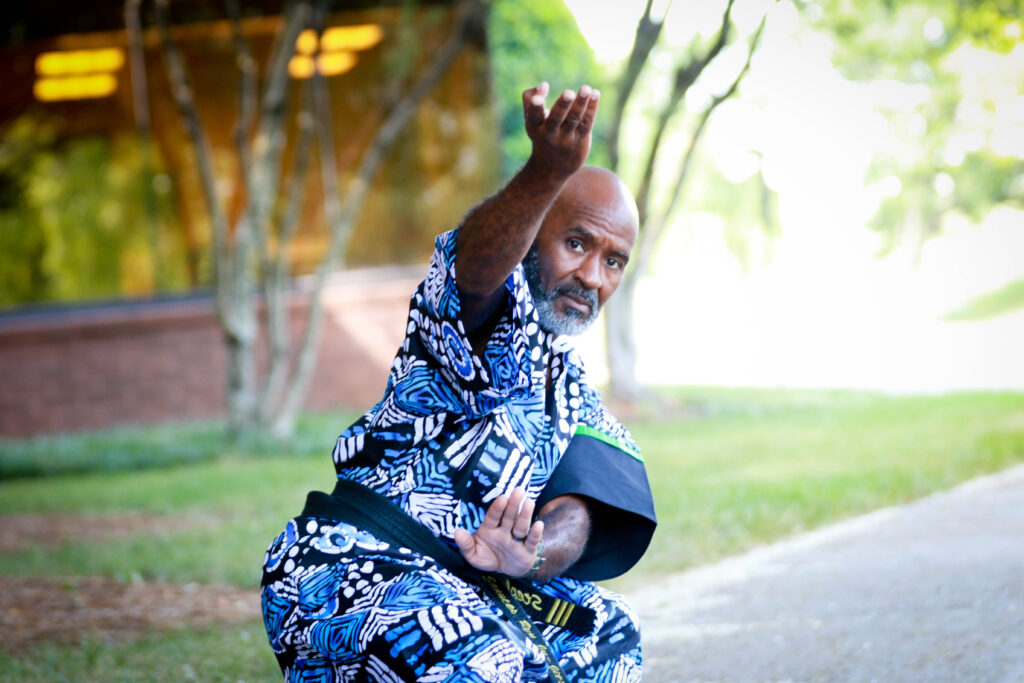When people think of martial arts, they often picture fast punches, high kicks, or maybe even a flying leap through the air. But there’s another side to martial arts that’s more about strategy, patience, and technique—this is the essence of jiu jitsu martial arts.
Jiu-jitsu isn’t just about overpowering an opponent; it’s about using your mind, body, and the right techniques to outsmart, control, and defend.
And here’s what makes jiu-jitsu so special: it’s a skill that anyone can learn, whether you’re looking for self-defense, physical fitness, or a deeper understanding of how to handle life’s challenges.
What is Jiu-Jitsu?
Jiu-jitsu is often called the “gentle art,” but don’t let that fool you. It’s an ancient martial art that uses leverage and technique to control and submit an opponent, even if they’re much larger or stronger than you.
The foundation of jiu-jitsu originated in Japan, where samurais used it as a way to fight off opponents when they were unarmed. Later, Brazilian jiu-jitsu (BJJ) evolved, and that’s the form most people are familiar with today.
The Origins of Traditional Jiu-Jitsu
Traditional jiu-jitsu has deep roots in Japanese culture. It was created as a practical way for samurai warriors to defend themselves when they lost their weapons.
Since samurais often wore heavy armor, techniques like striking or kicking were less effective. Instead, they focused on joint locks, throws, and using the opponent’s energy against them.
This is where jiu-jitsu’s philosophy of leveraging an attacker’s force comes from.
The Emergence of Brazilian Jiu-Jitsu
Brazilian jiu-jitsu (BJJ) took those same principles and evolved them into a system that’s incredibly effective in real-world scenarios.
When the Gracie family in Brazil began practicing jiu-jitsu, they emphasized ground fighting, which became a game-changer.
Instead of relying on brute strength, BJJ practitioners could control their opponents on the ground, where most fights tend to end up.
Key Philosophies of Jiu-Jitsu
What I love most about jiu-jitsu is the focus on strategy over strength. It teaches you that fighting isn’t just about being the biggest or the strongest—it’s about being smart, calm, and patient.
In jiu-jitsu, you learn how to stay relaxed under pressure, which is a skill that translates to everyday life. Whether you’re facing an opponent or a personal challenge, jiu-jitsu gives you the tools to handle it with confidence and control.
Core Techniques of Jiu-Jitsu
When people first start jiu-jitsu, they’re often surprised by how technical it is.
Sure, you’ll learn takedowns and submissions, but the real magic lies in the details—how you position your body, control your opponent, and use small adjustments to make big differences.
Takedowns and Throws
In jiu-jitsu, it’s crucial to be able to bring your opponent to the ground where you can control them. Takedowns and throws are the techniques you’ll use to do just that.
Whether it’s a hip throw or a trip, these moves allow you to get your opponent off balance and take them down with minimal effort.
Ground Control and Positioning
Once the fight hits the ground, jiu-jitsu becomes all about controlling your position. Whether you’re in the mount, guard, or side control, the key is to stay in a dominant position where you can attack or defend with ease.
I’ve seen many people get frustrated when they try to use strength instead of technique on the ground, but that’s the beauty of jiu-jitsu—it rewards technique over force every time.
Submissions and Joint Locks
The ultimate goal in jiu-jitsu is to submit your opponent using techniques like arm bars, chokes, or joint locks.
These moves are designed to neutralize an opponent quickly and effectively, regardless of size.
It’s amazing how powerful these submissions are, even when applied by someone who might be half their opponent’s size. It’s all about leverage and precision.
The Benefits of Jiu-Jitsu for Mind and Body
One of the best things about jiu-jitsu is how it benefits both your mind and your body. It’s not just a physical workout—it’s also a mental challenge.
Every session on the mat is like a puzzle, where you have to figure out how to outthink your opponent while staying calm and focused.
Physical Strength and Endurance
You don’t have to be in great shape to start jiu-jitsu, but you’ll certainly get there!
The constant grappling, controlling, and transitioning between positions is a full-body workout that builds core strength, flexibility, and endurance.
Even after a few months of training, most people notice they feel stronger and more confident in their body.
Mental Discipline and Strategic Thinking
Mentally, jiu-jitsu teaches you discipline and patience. You can’t muscle your way through it, and that’s a humbling experience.
Instead, you learn to stay calm, think a few steps ahead, and make strategic decisions, even when you’re tired or under pressure.
This mental toughness carries over into all areas of life, helping you stay focused and clear-headed in stressful situations.
Stress Relief and Focus
Let’s face it—life can be stressful. One of the things I love about jiu-jitsu is how it helps you de-stress and clear your mind. When you’re on the mat, all you can think about is the task at hand.
The worries of the day just melt away as you focus on your technique, your breathing, and your opponent. It’s like a moving meditation.
How Jiu-Jitsu Prepares You for Real-World Self-Defense
While jiu-jitsu is a great way to stay fit and relieve stress, its real power lies in its practical application for self-defense.
Unlike some other martial arts, jiu-jitsu doesn’t rely on flashy kicks or punches. Instead, it’s all about controlling and neutralizing an attacker, even if they’re bigger and stronger than you.
Escaping from Common Holds and Grabs
In self-defense situations, you might find yourself grabbed or pinned by an attacker. Jiu-jitsu teaches you how to escape from these situations using simple, effective techniques.
Whether it’s a bear hug, choke, or wrist grab, jiu-jitsu gives you the tools to free yourself and regain control.
Defending Against Larger Opponents
One of the core principles of jiu-jitsu is that size doesn’t matter as much as technique. With the right leverage and positioning, you can control or submit an opponent who’s much larger than you.
That’s why jiu-jitsu is so effective for self-defense—it allows you to use your opponent’s size and strength against them.
Real-Life Scenarios and Applications
Jiu-jitsu isn’t just for the mats. The techniques you learn are designed to work in real-life situations, whether you’re defending yourself on the street or protecting a loved one.
The ability to stay calm, think strategically, and control your opponent is invaluable in any self-defense situation.
Jiu-Jitsu Training for Different Age Groups
One of the things I love about jiu-jitsu is that it’s truly for everyone. Whether you’re a child, an adult, or even a senior, there’s a place for you on the mat. Each age group can gain something unique from the practice.
Jiu-Jitsu for Kids and Teens
For kids and teens, jiu-jitsu is a fantastic way to build confidence, discipline, and respect.
It’s not just about learning to fight—it’s about learning how to stay calm under pressure, handle challenges, and treat others with respect. Plus, it’s a great way to stay active and healthy.
Adult Training: Fitness and Self-Defense
For adults and seniors, jiu-jitsu is the perfect combination of fitness and self-defense. Whether you’re looking to get in shape, relieve stress, or learn how to protect yourself, jiu-jitsu offers it all.
It’s a full-body workout that challenges you physically and mentally, and it’s a practical way to stay safe in real-world situations.
Senior Citizens: Gentle but Effective Movements
Jiu-jitsu is also a fantastic option for seniors. It offers gentle, low-impact movements that help improve mobility, balance, and confidence. I’ve seen older students thrive on the mat, gaining strength and coordination without the risk of injury.
How to Get Started with Jiu-Jitsu
If you’ve never tried jiu-jitsu before, getting started might feel a little intimidating. But trust me—it’s one of the most welcoming martial arts communities you’ll find. The first step is finding the right school.
Choosing the Right School and Instructor
When you’re looking for a jiu-jitsu school, it’s important to find one that matches your goals and personality. Look for a place that emphasizes technique, respect, and safety. A good instructor will make sure you feel comfortable and confident as you learn.
Understanding Belt Progression and Ranking
In jiu-jitsu, progression is marked by different colored belts. Beginners start with a white belt and work their way up to black belt through consistent training and improvement.
But remember, the journey is more important than the destination—each belt represents growth and learning.
What to Expect in Your First Class
Your first jiu-jitsu class might seem overwhelming, but don’t worry—you won’t be thrown into the deep end.
Most schools will start with a warm-up, teach you a basic technique, and give you time to practice with a partner. The key is to stay patient, ask questions, and have fun.
Become a Stronger, More Confident You with Eye2Eye Combat’s Jiu-Jitsu Classes
Jiu-jitsu teaches you more than just self-defense. It’s a journey that strengthens your body, sharpens your mind, and builds your confidence every time you step onto the mat.
Whether you want to improve your fitness, learn practical techniques, or find a new way to challenge yourself, jiu-jitsu has something valuable to offer.
At Eye2Eye Combat, we believe in making martial arts accessible, effective, and empowering for everyone.
So, if you’re ready to explore the art of jiu-jitsu and take control of your personal growth, come visit Eye2Eye Combat and start your journey today. Our expert instructors are here to guide you every step of the way.
FAQs
What type of martial art is Jiu-Jitsu?
Jiu-jitsu is a martial art focused on using leverage and technique to control or submit an opponent, often on the ground. It’s great because you don’t need to rely on strength. Instead, you use your opponent’s movements and energy against them, making it highly effective.
Can Jiu-Jitsu be used in a real fight?
Yes, jiu-jitsu works really well in real fights. It teaches practical techniques to control, neutralize, or escape from an opponent, even if they’re bigger or stronger. That’s why many law enforcement and self-defense programs use jiu-jitsu—it’s realistic and effective in real-life situations.
Is karate or Jiu-Jitsu harder?
It depends on what you find challenging. Karate focuses more on strikes, like kicks and punches, while jiu-jitsu is more about grappling and ground control. Some might find jiu-jitsu’s emphasis on technique tougher, while others might find karate’s fast-paced striking more difficult.
Is Jiu-Jitsu or taekwondo better?
It really comes down to what you’re looking for. Jiu-jitsu is excellent for ground fighting and self-defense, while taekwondo emphasizes high, powerful kicks. If you want to learn how to defend yourself in close combat or on the ground, jiu-jitsu is probably your best bet.





